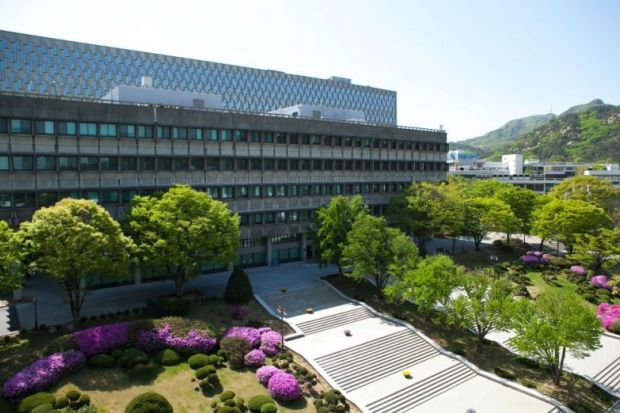Some South Korean universities are rethinking how they conduct assessments before final exams, which are scheduled to take place later this month, amid allegations of cheating during earlier mid-term exams that were held online because of coronavirus fears.
Seoul National University (SNU), which is top-ranked in the country and among the top 10 universities in Asia, was named in a report about exam cheating by the Hankyoreh newspaper. Two other institutions that allegedly caught students cheating were Inha University in Incheon and Sogang University in Seoul.
Inha University has now decided to hold its final exams in person, and its website details the procedures students should follow for test-taking: fill in a health form on a university-developed app; arrive an hour earlier for temperature checks; bring their own masks, hand sanitiser and gloves; and disinfect their own seats.
Sogang University already announced that some mid-term exams would be called off “considering the loss of contact hours due to remote learning”, but that some “inevitable” exams would be conducted online. It added that evaluations for the spring semester would be calculated on an absolute grading scale, not on a curve, as remote learning “made communication between the lecturers and the students relatively difficult and inefficient”. A decision on final examinations is pending.
Hankyoreh reported that SNU will allow professors to decide how exams are held, although student representatives have voiced their preference for online exams owing to health concerns. The students recommended that open-book exams or research papers could be used as alternatives to online assessments.
Chang Kim, executive director of the Korean Association of Human Resource Development in South Korea, told Times Higher Education that universities may not have sufficient preventive measures to conduct exams digitally.
“According to the Korean media, most universities in Seoul have no countermeasures against online cheating or substitute exam-takers, etc,” he said. “A few universities use video conferencing systems to verify the identities of students, but I think that is not enough.”
“If the test is conducted in the form of multiple-choice questions, sharing information for correct answers between students through messaging [tools] becomes easier,” compared with essays, he said.
He added that, if the fairness of mid-term exams could not be guaranteed, universities may need to review how assessments are weighted in final scores. “In this case, university authorities must take certain measures to prevent the recurrence of online cheating before the final exam schedule.”
South Korea, which has had fewer than 300 Covid-19 deaths, has been lauded for its cautious approach in controlling the disease.
In-person teaching at universities was suspended before the spring semester began in March. Some schools reopened in late May but shut again quickly when daily cases edged into the high double digits. Limited university activity, such as laboratory or practical courses, have resumed on a partial basis.
Some universities, even those that have not detected online exam cheating, are now planning on returning to in-person exams as the country opens up in general.
Register to continue
Why register?
- Registration is free and only takes a moment
- Once registered, you can read 3 articles a month
- Sign up for our newsletter
Subscribe
Or subscribe for unlimited access to:
- Unlimited access to news, views, insights & reviews
- Digital editions
- Digital access to THE’s university and college rankings analysis
Already registered or a current subscriber? Login







